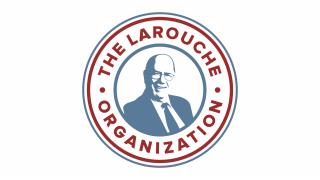Feb. 23, 2025 (EIRNS)—While U.S. President Donald Trump is moving for a peaceful resolution to the crisis in Ukraine, some Europeans aren’t too happy about it. Polish President Andrzej Duda met with Trump on Feb. 22. Macron arrives on Feb. 24, to push Trump on backing a 30,000-strong “peacekeeping” force in Ukraine—a proposal that Russia has completely rejected. Then Sir Keir Starmer, Prime Minister of the U.K. will disgrace Washington with his presence on Feb. 27 with similar hopes of coaxing Trump into continued military confrontation.
U.K. Foreign Secretary David Lammy is working too. He wants to “tighten the screws” on Russia by imposing something that will probably draw a yawn from Moscow: some new sanctions. “This is a critical moment in the history of Ukraine, Britain and all of Europe,” he claimed. “Now is the time for Europe to double down on our support for Ukraine, in pursuit of peace through strength. On the battlefield we remain committed to providing £3 billion of military support a year….”
For his part, Trump is playing hardball with Ukraine, pushing an agreement on Ukraine’s minerals that would see that nation sending half of its mineral revenues to a U.S.-administered fund, intended to reach $500 billion in value.
Russia’s Deputy Foreign Minister Sergey Ryabkov has shared the good news that the process of setting up a Trump-Putin meeting is moving forward, and Foreign Minister Lavrov has called the U.S. refusal to join an anti-Russia resolution at the United Nations an act of “common sense.” The meeting of U.S. and Russian officials is “not the end of confrontation between Russia and the West,” he said, “but everyone admits that the start of the dialogue itself is return to normalcy, and everyone welcomes it.” Secretary of State Marco Rubio made similar remarks during an extensive interview in which he emphasized that diplomacy cannot function without communication, something that was totally lacking in the last administration vis-à-vis Russia.
Meanwhile, whether Trump will implement an independent foreign policy in Southwest Asia remains an open question. Israeli Prime Minister Netanyahu would love nothing more than to draw the United States into a war with Iran. Netanyahu is increasing the pressure: Israel has blocked the release of prisoners who were to be freed in exchange for the hostages freed by Hamas this week and blamed the suspicious bus bombings in Tel Aviv on Iran, even though the only arrests so far are two Israeli Jews. Meanwhile, Trump says he is open to alternatives to his “Riviera” plan for Gaza, and Hamas has indicated it is willing to cede political control of Gaza to an alternative Palestinian governing body.
Helga Zepp-LaRouche issued an election-night statement on the German parliamentary elections held on Sunday, Feb. 23. The election was held in a bubble, she assessed, with the most important issues of the day—the NATO-Russia war, the Nord Stream bombing, Germany’s industrial collapse—barely featuring in the election discussion, whether in the media or by the parties themselves. “The way out for Germany lies in cooperation with the BRICS countries and thus with the Global Majority,” she concludes. “German citizens should be prepared to become much more active if Germany’s future is to be secured.”
This is good advice to the whole world! Europe needs its own, independent foreign policy. And the United States desperately needs to reorganize its priorities, toward the major investments into infrastructure, science, and cooperation that will ensure a future of abundance, and personal meaning.






